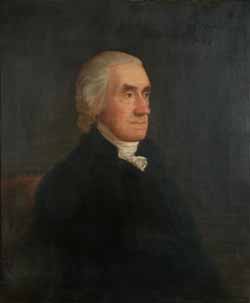“Letters were found in the Doctor’s pocket”
The day after the late battle in America, some of the Regulars searched the pockets of Dr. [Joseph] Warren, who was killed, and found three letters sent to him from some spies at Boston, which were immediately sent there, and the writers being soon discovered were sent to prison.
A gentleman is arrived in town, who was present at the action on the 17th of June, at Charles Town, between the Provincials and the Regulars. . . . He further says, that the celebrated Dr. Warren, who commanded the Provincial trenches at Charles-Town, while he was bravely defending himself against several opposing Regulars, was killed in a cowardly manner by an officer’s servant, but the fellow was instantly cut to pieces; six letters were found in the Doctor’s pocket, written from some gentlemen in Boston, who were immediately taken into custody, and whose situations when he came away, were so perilous and critical, that their friends every moment feared their executions from some arbitrary and illegal sentence of the new adopted law martial.And a number of early September newspapers reported this news from a recently arrived merchant vessel:
She sailed from Boston the 29th of July, but has brought no newspapers, and, we are well informed, that everything remained quiet, and would continue so till an answer was received by this ship. By the above ship we learn, that two persons have been taken up in consequence of some papers found in Dr. Warren’s pocket.Those “two persons” were the schoolteachers James Lovell and John Leach, arrested on 29 June as described yesterday.
Only a month after those arrests, the London press was reporting on the letters in Warren’s pocket. Whatever ship first brought the news must have made a very fast passage—as fast as John Derby had sailed the Quero across the Atlantic in May to carry the Massachusetts Provincial Congress’s report of Lexington and Concord to London. An average voyage was closer to five weeks or more, as with the merchant vessel that left on 29 July and arrived in early September.
That speed suggests some captains were sailing as fast as possible to bring news from the new war to the Crown, and getting lucky with the weather, too.
TOMORROW: How the letters implicated Lovell and Leach.



